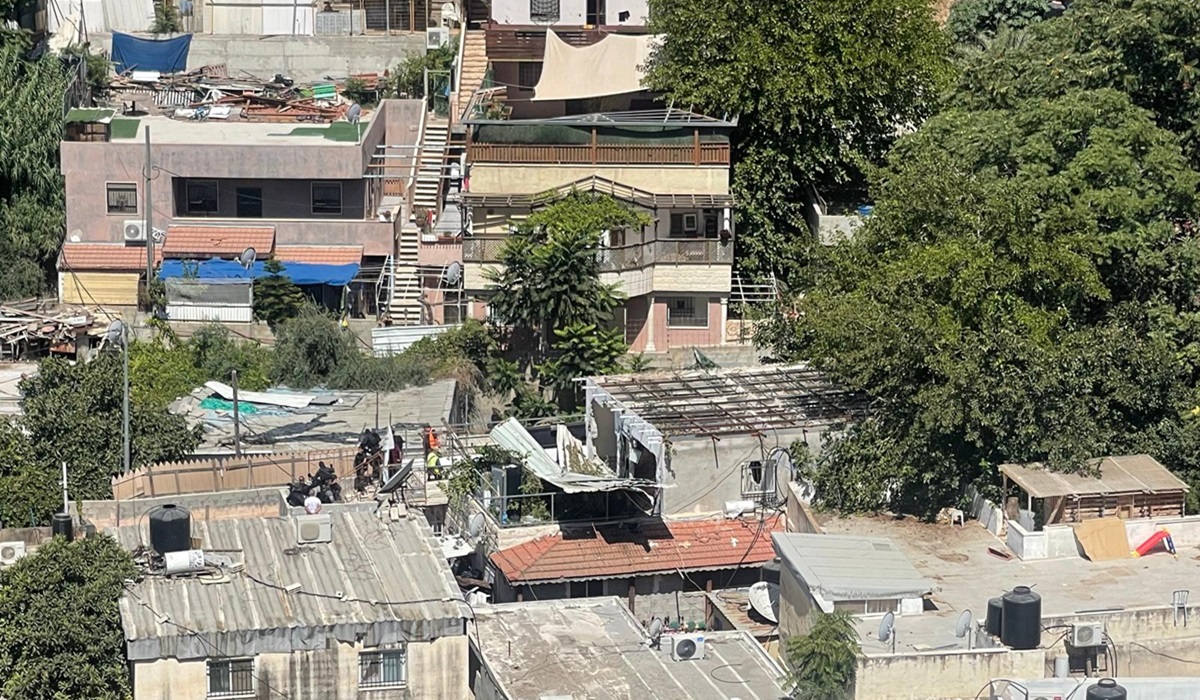Israeli Authorities Demolish Palestinian Home in East Jerusalem, Community at Risk
- Ingrid Jones
- Middle East
- Trending
- August 6, 2024

Image Credit, NRC
Early Tuesday morning, Israeli forces and Jerusalem municipality workers demolished a Palestinian home in the Al-Bustan area of Silwan, East Jerusalem. The destruction displaced seven Palestinians, including two children, in what advocacy groups assert is a clear violation of international law prohibiting forcible transfer and the destruction of property.
“Israel must immediately stop forcibly displacing Palestinians and demolishing their homes and property in Al-Bustan and throughout the occupied Palestinian territory,” stated Nathan Carey, head of advocacy for the Norwegian Refugee Council (NRC) in the Middle East and North Africa. “The international community must take all possible actions to prevent further displacement of Palestinians, halt Israeli settlement expansion, and hold Israel accountable for violating international law.”
The demolition comes amid growing tensions and fears in the Al-Bustan community, home to approximately 1,550 Palestinians. In July, nine families, including that of Mohammad Odeh, received final demolition notices indicating their homes would be destroyed within 21 days. Odeh’s home was the first to be demolished, leaving the remaining homes at imminent risk.
“This isn’t the first time authorities have demolished my building,” said Odeh. “My home is no different from those destroyed in Gaza. This is the reality under occupation.”
The Silwan neighborhood, including Al-Bustan, faces numerous challenges, including overcrowding, inadequate services, and a relentless threat of demolitions. Raeda Badran, a neighbor of Odeh, lives with her son, daughter-in-law, and two young grandchildren. After receiving a final demolition notice for an extension to her home, she chose to self-demolish the structure to avoid steep fines and spare her family the trauma of witnessing another forced demolition.
“This is the harsh reality for us,” said Badran. “We live in constant fear of losing our homes and the memories tied to them.”
So far this year, Israeli authorities have demolished 19 Palestinian properties in Silwan, displacing 52 people. The neighborhood is a prime target for Israeli settler organizations, which aim to establish Jewish settlements by seizing Palestinian properties. The broader context of these demolitions highlights a disturbing trend: in 2023, demolitions of Palestinian structures in East Jerusalem reached a record high of 229, half of which were homes.
Data from the United Nations Office for the Coordination of Humanitarian Affairs (UN OCHA) reveals a grim pattern: between January 1 and August 2, 2024, Israel demolished 128 Palestinian structures, including 61 homes, displacing 330 people.
Legal experts and human rights organizations argue that these actions violate the Fourth Geneva Convention, which protects the property of occupied populations and prohibits forcible transfers. The International Court of Justice recently declared Israel’s presence in the occupied Palestinian territory, including East Jerusalem, unlawful, calling for an immediate end to settlement activity and the displacement of Palestinians.
The ongoing demolitions in Silwan underscore the urgent need for international intervention to safeguard the rights and homes of Palestinians living under occupation. The Al-Bustan community’s plight is a stark reminder of the broader struggle facing Palestinians in East Jerusalem and the occupied territories.
From 2019 to 2023, Israeli authorities demolished 113 Palestinian properties in Silwan, including 54 homes, primarily due to the lack of building permits. Demolition data sourced from UN OCHA.
Under the Fourth Geneva Convention, Palestinians in the occupied Palestinian territory are protected persons whose private property cannot be confiscated or destroyed except in cases of military necessity, which do not apply here. Forcible transfers, whether individual or mass, are strictly prohibited without exception, except to protect displaced persons during active hostilities.








